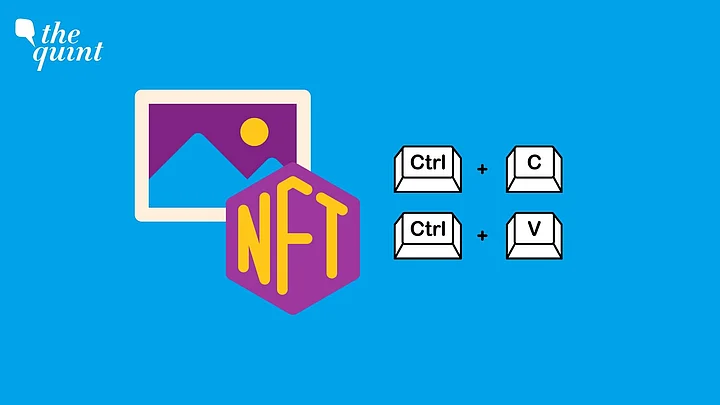Cent, the non fungible token (NFT) platform on which Twitter CEO Jack Dorsey's tweet was sold for $2.9 million, has temporarily suspended most transactions, due to rampant plagiarism and stolen content.
"Our response has been to ban the offending accounts, but we believe that this approach is not sustainable. That’s why, effective today, we’re removing the ability to sell NFTs here," wrote CEO Cameron Hejazi in a blog post.
This is a widespread problem. OpenSea, one of the most popular NFT marketplaces, also tried to put a 50-item limit on their free minting tool because it was being abused.
Minting Is 'Free' and Easy
NFTs are essentially unique digital receipts which can prove ownership of an underlying digital file. Even though the underlying file can be copied and pasted freely, the unique receipt will only belong to the true owner since it can't be replicated.
But since there is little to no regulation in crypto-based marketplaces and its relatively easy to mint NFTs, you don't have to prove that you're minting NFTs of your original creations.
Writing data onto the blockchain requires a fee (called gas) for the computation and storage. However, platforms like Opensea offer 'lazy minting' which uses a portion of the selling price as gas, effectively allowing users to mint for free.
With this, it's very easy to copy someone's work, mint an NFT, and reap the often considerable monetary benefits.
"We've recently seen misuse of [free minting] feature increase exponentially. Over 80 percent of the items created with this tool were plagiarized works, fake collections, and spam."OpenSea on Twitter
"Recently, on our network, we’ve seen people taking others’ work and re-minting it using our services. We believe these people are bad actors, who only engage with Cent for the purpose of tricking others into purchasing counterfeit work," wrote Hejazi.
He highlighted three main problems, according to Reuters:
People selling unauthorised copies of other NFTs.
People making NFTs of content which does not belong to them.
People selling sets of NFTs which resemble a security.
Lack of Industry-Wide Standards, Legislation
If someone else minted NFTs of your artwork and began selling them on a marketplace, all you can really do is petition the platform and ask them for help. The platform may then delist the sale or block the offending accounts.
Under copyright law, it's technically illegal to mint someone else's work without due permission. However, since blockchain-based transactions offer anonymity and the volume of transactions is high, the law is difficult to enforce.
"Another challenge for authorities and marketplaces is to identify NFTs deemed as securities and implement existing tax laws as per jurisdiction which is further a cumbersome task," said Anshul Dhir, COO & Co-Founder at EasyFi Network.
"Currently, there is no industry wide standard for counteracting bad behavior. Some marketplaces restrict who can mint using their services, while others play whack-a-mole weeding out bad actors."Cameron Hejazi to Reuters
"An NFT owner is the one who owns the original piece of hex values signed by the creator. Copyright laws, therefore, need to be enforced strictly in case of digital art and collectibles tokenized in the form of NFTs," said Sharat Chandra, VP - Research & Strategy, EarthID.
Web3 podcaster Dheeraj Shah contests that Blockchain is just a tool to help authenticate the origin of assets and was never intended to solve plagiarism.
“There are thousands of copies of the Mona Lisa being sold all over the world, you can find it in India for even mere Rs 100. The same can be said for Eiffel Tower, which many people have replicated in different countries, but they’re not as valuable as the real thing. That’s why the origin or provenance of items matters,” he said.
He added that regulated marketplaces like Cent and OpenSea are still companies based out of the US and have to comply with the law.
Artists Vs Anonymity
The decentralised nature of blockchain technology, where anonymity is ensured and trade can occur without a central authority controlling the activity, is one of the major draws of NFTs.
But Hejazi said his marketplace, Cent, was focused on protecting content-creators, and may introduce centralised controls as a short-term measure in order to reopen the marketplace, before exploring decentralised solutions, the agency reported.
The NFT market continues to grow and major brands are starting to take notice. Companies like Coca-Cola and luxury brand Gucci have sold NFTs, while Twitter and YouTube are exploring NFT related features.
However, the space is rife with reports of scams, counterfeits and wash trading (where NFTs are made to appear more valuable by selling them to a wallet controlled by the original seller).
With its transition into the mainstream, these issues will likely come under the spotlight more often and might eventually be addressed by specific legislation and regulation.
(With inputs from Reuters.)
